Choosing the right skincare during pregnancy isn’t a simple task. Knowing what beauty products shouldn’t be used during pregnancy takes thought and patience, so in this guide you will learn the skincare products that are OK to use while pregnant (and why you can or can’t use them). Let’s keep your skin looking amazing!
Hello! It’s been a while since I wanted to publish a new post in this category, but I’ve been very busy and couldn’t find the time to do it properly. With today’s post I am going to discuss a topic that many of you have asked me about and I think it is important to talk about here: what cosmetic products can you use while pregnant?
To summarize a bit, the points I will talk about are the following:
- Why do you have to change your beauty routines when you are pregnant?
- How to know which skincare products you can use during pregnancy?
- Skincare products you shouldn’t use while pregnant.
- Skincare products you can use while pregnant.
- Remember: you must take care of all your skin.
1. WHY DO YOU HAVE TO CHANGE YOUR BEAUTY ROUTINES WHEN YOU ARE PREGNANT?
The answer to this question may seem obvious, but sometimes it is important to remember the most basic things. Pregnancy is an amazing process, your body goes through many changes that you will have to adapt to (at its own pace, not yours). During pregnancy you will have to be even more careful than usual: everything you do may affect your baby, so you should also keep an eye on the skincare products you use.
When you are pregnant your hormones revolt, and with them your whole body (including your skin) goes through great changes. This can lead to acne breakouts, spots, etc. that will require a lot of patience from you. There are many myths circulating around pregnancy and skincare, but I’m just going to focus on true, trustworthy evidence. At the end of the day, if we contrast the news that comes to us, how can we not do it with something as important as this?
2. HOW TO KNOW WHICH SKINCARE PRODUCTS CAN YOU USE DURING PREGNANCY?
First of all, we need to know how we can identify if a product can be used during pregnancy. For that, the FDA (Food and Drugs Administration), the US Agency in charge of regulating everything related to public health: food, medicines, cosmetics, etc. established between 1979 and 2015 several categories to classify how safe it is for a pregnant woman to use different products. Nowadays, this system has been modified by another one that’s more explanatory and simple, making it easier to know if using a certain product carries a risk for pregnant women. In any case, if you still find a product that uses the old system, I’ll explain quickly what each category meant in order to understand them. Keep in mind that these categories were not only applied to skincare products and cosmetics, but also to medications, so if you think you’ve misread something, consider they might be talking about drugs. Specifically, the categories are as follows:
Category A:
Adequate and well-controlled studies have failed to demonstrate a risk to the fetus in the first trimester of pregnancy (and there is no evidence of risk in later trimesters).
What does this mean? The product is safe, has been tested in pregnant women and no risk to the fetus has been detected when using it.
Category B:
Animal reproduction studies have failed to demonstrate a risk to the fetus and there are no adequate and well-controlled studies in pregnant women.
What does this mean? No studies have been done in pregnant women, but the product has been tested on animals and no risk to the fetus has been detected when using it.
Category C:
Animal reproduction studies have shown an adverse effect on the fetus and there are no adequate and well-controlled studies in humans, but potential benefits may warrant use of the drug in pregnant women despite potential risks.
What does this mean? No studies have been done in pregnant women, but the product has been tested in animals and there has been detected risk to the fetus or it cannot be assured that there is no risk.
Category D:
There is positive evidence of human fetal risk based on adverse reaction data from investigational or marketing experience or studies in humans, but potential benefits may warrant use of the drug in pregnant women despite potential risks.
What does this mean? There are studies in pregnant women that indicate that the use of the product carries a risk to the fetus.
Category X:
Studies in animals or humans have demonstrated fetal abnormalities and/or there is positive evidence of human fetal risk based on adverse reaction data from investigational or marketing experience, and the risks involved in use of the drug in pregnant women clearly outweigh potential benefits.
What does this mean? There are studies in pregnant women that indicate a clear risk to the fetus when using the product, so its use is unadviced.
It should be kept in mind that there are not many scientific studies published on the influence of various skincare products in pregnancy, so it is wise to be cautious and, when in doubt, avoid products that you are not sure about. After all, you have to ask yourself: what is this product for? Do I really need to use this product right now?
In any case, as always, whenever you have any doubt about whether you should use a product or there is not a person who will know how to help you better than anyone else: your gynecologist.
3. SKINCARE PRODUCTS YOU SHOULDN’T USE WHILE PREGNANT.
Surely, if you have searched for some information on the subject, you have found many products that you are not supposed to use during pregnancy. However, often the articles that tell you whether you should use certain products or not, do not give you a reliable reason or source, and that is why false myths spread easily. Remember that, in addition, there are certain ingredients that should always be avoided, of which I spoke in my post about how to read the labels of skincare products. Let’s see what are the products you should avoid during pregnancy and what evidence there is about them:
- Acetone: its use is not advised during pregnancy, it is recommended to replace it with other hypoallergenic nail polish removers.
- Aggressive hair coloring (with ammonia): its use can cause risk during pregnancy, so it’s advised to avoid them.
- Botox: there is no certainty about its safety during pregnancy, so it is advised not to use it.
- Caffeine: Although it is usually found in very low proportions, it is not recommended to use products that contain caffeine during pregnancy.
- Essential oils: there are hardly any scientific studies on their influence on pregnancy. In general, it is preferable to avoid them because they are very powerful and their use can be irritating, so it is better not to use them.
- Hydroquinone: it is used to rebalance the skin tone and eliminate spots (such as melasma and chloasma). Since the body absorbs a significant amount (from 35 to 45%, much more than with other products), it is better to limit its use during pregnancy. In general, the use of products to reduce spots is not recommended.
- Products for hair growth: its use is not advised during pregnancy, as it can pose a risk to the fetus.
- Products to treat edema containing arnica: it is recommended to avoid its use during pregnancy, as it can pose a risk.
- Products to treat acne containing doxycycline or minocycline: it is recommended to avoid the use during the pregnancy, since it can cause risks to the fetus.
- Products with more than 3% of menthol or camphor: it is common to find these amounts in products for pain relief, but its use is not advised during pregnancy as it can cause damage to the fetus.
- Retinoids (retinol, tretinoin, etc.): several cases of pregnant women with problems after using retinoids have been documented, but there are also studies in which no problems have been found. In any case, until there are studies that give a more definitive result, the use is not recommended.
- Sunscreen with chemical filters: those can be absorbed, so its use is not recommended during pregnancy.
4. SKINCARE PRODUCTS YOU CAN USE WHILE PREGNANT.
You already see that there are several products and ingredients that you should avoid during pregnancy so that everything goes smoothly. However, you should not be discouraged, there are many other products and ingredients that you can use without a problem. Remember that, in any case, if you have doubts your gynecologist can help you decide.
There is a widespread belief: organic or natural products are better. Often, this idea is nothing more than marketing that seeks to discredit some products (this is called chemophobia). Before you look at whether the ingredients are organic (or claim to be organic) it is better to focus on knowing if the products contain ingredients that are safe to use during pregnancy. Here I’ll leave a list with a lot of them so you can keep it handy and so you can easily find what beauty products you can use during pregnancy:
- AHAs: you will remember them from my post about acids for the skin. They can be used, but only if their concentration is less than 10% and they come in the form of lotion, cream, gel or solution. In the rest of cases it is not advised to use it during pregnancy. Its use should be moderate and always with sunscreen, since they cause photosensitivity to the skin. You could try The Ordinary Lactic Acid 10% + HA 2%, which you can get on DECIEM (recommended), on Amazon, on SkinStore and on FeelUnique.
- Antibacterial products to treat acne: studies have been done with clindamycin, and erythromycin, and no risks have been found for pregnant women when using them.
- Azelaic Acid: can be used during pregnancy and lactation, since studies in animals have shown that it doesn’t pose a risk to the fetus. To me, as of azelaic acid, I like The Ordinary Azelaic Acid Suspension 10%, which you can get on DECIEM (recommended), on Amazon, on SkinStore and on FeelUnique.
- Benzoyl peroxide: used to treat acne and found in many cleansers. Although no studies have been done specifically on the subject, its use should not pose a risk to pregnant women.
- Centella asiatica: can be used during pregnancy to reduce stretch marks or prevent them from appearing.
- Depilatory creams and skin lightening products: its use in moderation should not pose a risk during pregnancy.
- Glycolic acid: I told you about this acid on my post about exfoliating acids for the skin. Risks have been found in animal studies, but the dose was much higher than what you normally apply, so it should not pose a risk during pregnancy. As a glycolic acid I recommend The Ordinary Glycolic Acid 7% Toning Solution (about which I spoke a little more in this other post) and which you can get on DECIEM (recommended), on Amazon, on SkinStore and on FeelUnique.
- Hyaluronic Acid: its use is advised, since it is very common in fetal tissue. Hyaluronic acid helps to improve the hydration of your skin, since it attracts water and improves the effectiveness of your moisturizer. I’d advise you to check my comparison of hyaluronic acid serums, I’m sure you’ll find the right formula for you.
- Lipoic Acid: can be used during pregnancy, since it is not related to possible risks during pregnancy.
- Panthenol: same as hyaluronic acid, it is recommended to use it to improve the hydration of the skin. If you want a product that contains it, you can try The Ordinary Hyaluronic 2% + B5, which you can get on DECIEM (recommended), on Amazon, on SkinStore and on FeelUnique.
- Resveratrol: can be used topically during pregnancy, although there are studies that have found damage to the fetus when taken orally.
- Rose oil: can be used during pregnancy to reduce low back pain.
- Rosehip oil: can be used during pregnancy to prevent and reduce stretch marks, which arise when the skin is stretched and damaged. I recommend you to try The Ordinary 100% Organic Cold-Pressed Rosehip Seed Oil, which you can get on DECIEM (recommended), on Amazon, and on FeelUnique.
- Salicylic acid (BHA): I told you about this acid, which provides a gentle exfoliation to reduce blemishes and improve the texture of the skin, on my post about exfoliating acids. They are not considered to pose a risk to pregnant women, although their use in peelings is not advised. I would recommend you to try the Paula’s Choice Skin Perfecting 2% BHA Liquid Exfoliant, available on Paula’s Choice, on Niche Beauty, on Amazon and on FeelUnique.
- Self-tanning products with dihydroxyacetone: a tiny amount is absorbed and its use during pregnancy should not pose a risk.
- Sunscreen with physical filters: they are those with titanium dioxide and zinc oxide. They do not usually irritate the skin, so its use is recommended during pregnancy, although it is better not to expose yourself much to the sun. Remember to use it before exposing yourself to the sun and always with a minimum SPF of 30.
- Vitamin C: it is used to improve the tone and texture of the skin, so it is ideal to reduce spots and keep the skin young. It can be used in skincare products during pregnancy thanks to its antioxidant properties. If you want to start using vitamin C you could try The Ordinary Magnesium Ascorbyl Phosphate 10%, which you can get on DECIEM (recommended), on Amazon and on FeelUnique.
- Vitamin E: in combination with vitamin C gives you a great improvement in skin tone. It can be used in skincare products without posing a risk to pregnancy. I love the moisturizer Klairs Freshly Juiced Vitamin E Mask, which you can get on Wishtrend, on Yesstyle, and on Amazon.
Of course, there are a lot of products that you can use during pregnancy, if what you are looking for is to moisturize your skin in depth and give a good dose of antioxidants to keep it protected and healthy you can give a chance to The Ordinary Natural Moisturizing Factors, which you can get on DECIEM (recommended), on Amazon, on SkinStore and on FeelUnique.
5. REMEMBER: YOU MUST TAKE CARE OF ALL YOUR SKIN.
Sometimes, when we talk about taking care of the skin, we only think of our face. However, we have to take care of our skin, from head to toe. You have to remember to moisturize and nourish it well to keep it healthy and young. During pregnancy, stretch marks and cellulite often make their appearance if we do not pay special attention to our skin, but you can prevent it. Remember to keep your skin well hydrated from the first day and to take care of it to keep it elastic and young.
Of course, there are other ways to help your skin and your body: moderate exercise and a proper, balanced diet will be fundamental to keep yourself always healthy.
Tell me, what products do you usually use during pregnancy to care of your skin? Remember that if you have any questions you can leave me a comment and I will answer as soon as possible, and if you have questions about any product you should always ask your gynecologist first.
If you liked this post, you will be interested in reading:
Do you want to learn to take better care of your skin? You can see an index of all my informative posts here.
● Follow me on Instagram, Facebook, TikTok and Pinterest.
● Share, comment and like my posts on social media.
● Shop through my links to help me keep up with this blog.

I’m Nacho and I’m passionate about skincare. I really enjoy learning and sharing my knowledge about skincare and I read scientific papers so you don’t have to. I want to break stereotypes because I believe skincare has no gender: skin is skin.


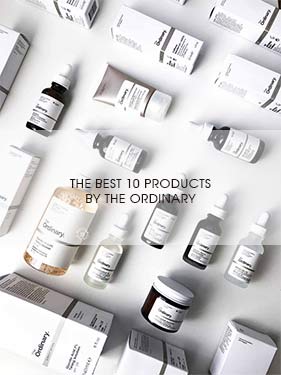
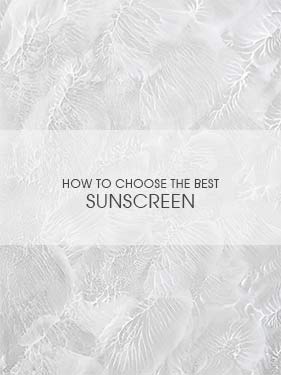
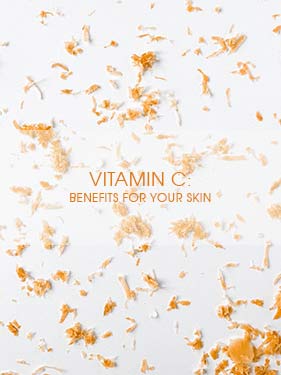
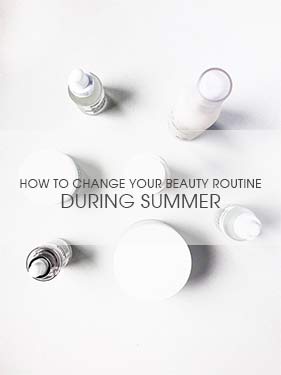
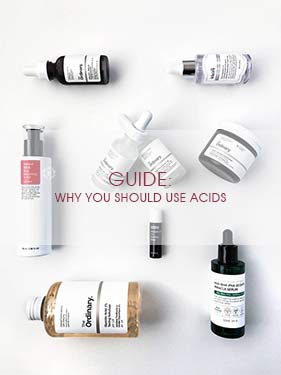
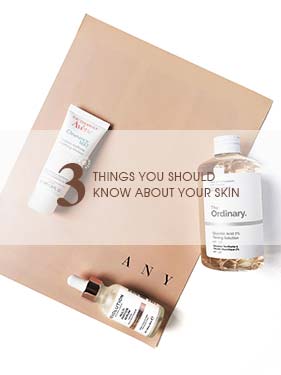
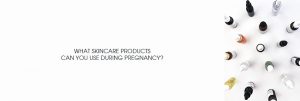

Nice guidance! You are sharing such a nice guidance about to choose best skincare products. My sister is pregnant and this article would be really helpful for her. I will definitely share this article with her. Thanks and keep sharing.
Hi Amanda! Welcome to my blog! 😊
I’m happy to read that this guide is helping you and your family! As I mentioned earlier in this post, if you have any doubts regarding the implications of using particular skincare products during pregnancy your gynaecologist will surely help you 😉
Remember that, in any case, you should always patch test your new skincare products to make sure they won’t cause any unwelcome consequences 🖤
All the best,
Nacho.
How about facial lotion containing Tranexamic Acid?
Hi Farah! 😊
You should contact the brand in order to know if they have tested that particular product on pregnant women. In any case, ask your doctor about this particular issue, since him/her can give you the best advice on that particular topic 😉
All the best,
Nacho.